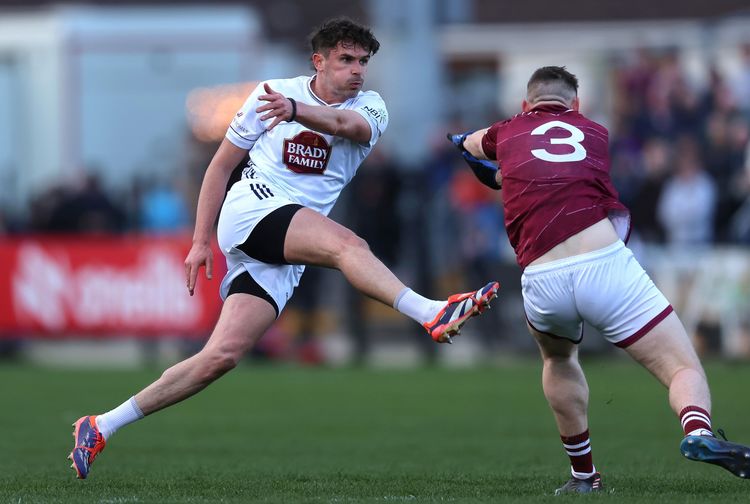Molly McCloskey: “I’ve always loved aftermath stories."
PHOTO BY LEONE BRANDER
Page Turner / Edited by Peter McDermott
Recently praising a work from a fellow novelist as a “triumph,” with prose of “immense authority, precision and seriousness,” Joseph O’Connor added: “If you’ve ever fallen in love with someone you shouldn’t have fallen in love with – as who hasn’t, once or twice, and that’s if you’re lucky – be prepared to encounter the novel as mirror.”
The author herself, Molly McCloskey, said: “‘Straying’ is about a young American woman who goes to the west of Ireland in the late 1980s, where she meets an Irishman who later becomes her husband. Eddie seems to offer the stability she needs – or thinks she needs – but unhappiness sets in and she embarks on an affair that blows everything apart.
“I’ve always loved aftermath stories – the narrator looking back and trying to understand actions that shaped her life, significant steps she took without, at the time, quite knowing why,” she said. “The novel explores how our actions sometimes move ahead of our understanding: paradoxically, there are things we’re able to do – like destroy a relationship through betrayal – well before we’re actually able to admit to ourselves that we can no longer be in that relationship.
“As middle-aged people, we understand our 20-year-old selves in a way we never could have at 20,” McCloskey added. “And yet that younger self, for all its bull-in-a-china-shop way of going about life, was trying, instinctively, to get to a truer version of itself. So the novel is about that messy process. It’s also about home and the many ways we find and lose and remake our homes. It’s a love letter to my mother, on whom the mother in the novel is loosely based, who taught me the meaning of home both as refuge and as the still point from which we can depart.”
Another admiring novelist, Anne Enright, wrote: “‘Straying’ is as gripping as a memoir and as intimate as a poem. Molly McCloskey has written a novel that is both urgent and reflective, a tender and unsentimental exploration of love’s dark corners.”

Molly McCloskey
Place of birth: Philadelphia, Pa.
Residence: Washington, D.C.
Published works: “Straying” (novel); “Circles Around the Sun: In Search of a Lost Brother” (memoir); “Protection” (novel); “The Beautiful Changes” (novella); “Solomon’s Seal” (short stories).
What is your writing routine? Are there ideal conditions?
Writing in the morning is ideal, before the head becomes cluttered with the day’s distractions. But holding out for “ideal conditions” is just another dodge. Sometimes, the most ideal condition imaginable is a deadline.
What advice do you have for aspiring writers?
Don’t be afraid of looking foolish and don’t be afraid of failure. James Baldwin wrote that “one cannot risk love without risking humiliation,” and the same is true of writing. Learn to learn from your failures.
What book are you currently reading?
Alexandra Zapruder’s “Twenty-Six Seconds,” about the Kennedy assassination film, which was shot by her grandfather Abe Zapruder. It’s a history of the film as cultural artifact, historical moment, and force that shaped the Zapruder family. In the age of the iPhone, of citizen journalism, of our having grown used to viewing killings on the internet, this book is a fascinating read. “1984” (again!)
Is there a recent book you wish you had written?
Oh, loads. Though of course I don’t mean these books per se, but books as good as these. The nonfiction of Janet Malcolm. The novels of Renata Adler. Tim Lott’s “The Scent of Dried Roses.” Marion Coutts’ “The Iceberg.” Edmund White’s “The Farewell Symphony.” James Hannaham’s “Delicious Foods.” Coetzee’s “Waiting for the Barbarians.” Nicholson Baker’s “U and I.” John Banville’s “The Sea.” The list goes on.
Name a book that you were pleasantly surprised by.
“Eat, Pray, Love,” by Elizabeth Gilbert. I had assumed, based on its best-seller status and the sometimes cringey movie made of it, that this was going to be pulp nonfiction. Boy, was I wrong. It’s intelligent and searching and completely propulsive.
What book changed your life?
Derek Mahon’s “The Yellow Book” and “The Hudson Letter” together changed my life. Around the years that they appeared, I was going through a big personal upheaval. What Mahon’s poetry taught me is that there are ways of approaching and understanding and writing about private experience that is emotionally honest and yet has some kind of intellectual distance and frame.
What is your favorite spot in Ireland?
If you live in Ireland, it’s easy to get jaded about the scenery. But parts of West Cork and the coast of Kerry still take my breath away. Belbulben on a good day. Merrion Square in Dublin. Howth Head. The many beaches of Sligo.








